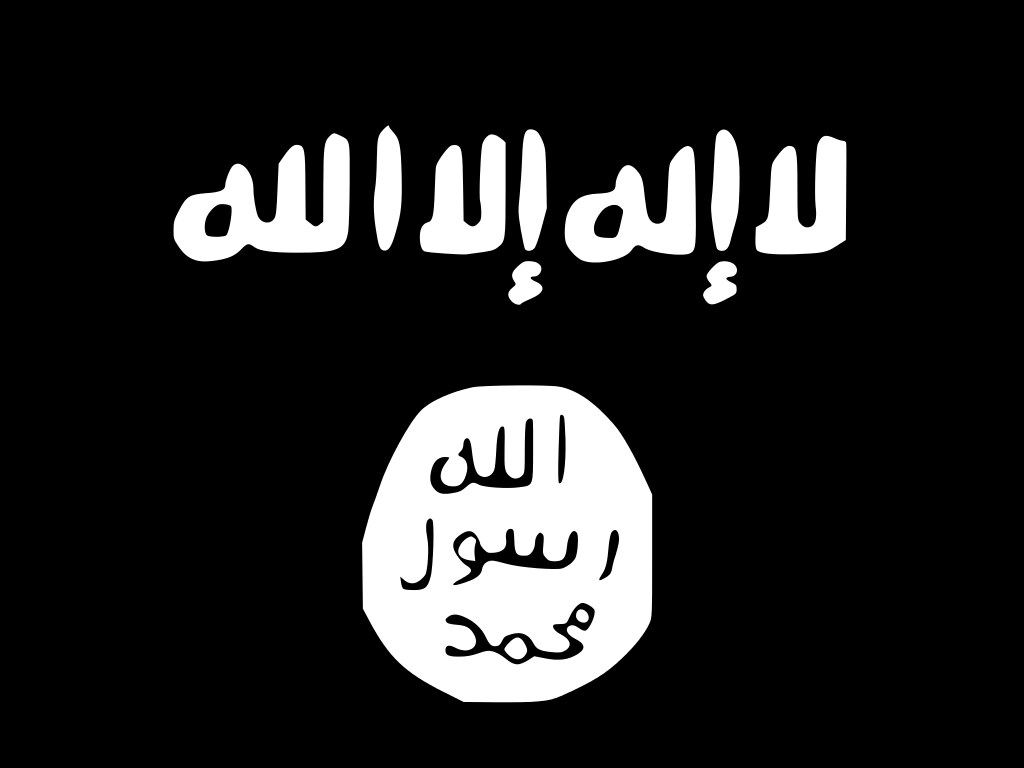
Flag of the Islamic State.
“The impression created by recent events is that Washington rather than Pretoria is steering counter-terrorism operations in South Africa.”
South African reactions to the newest round of U.S. counterterrorism sanctions on its citizens underscore systemic policing challenges in the field of counterterrorism. In November 2022, the U.S. Department of the Treasury sanctioned four South Africans and eight South African businesses for offering material support to the Islamic State (IS),[i] namely, its newest branches in the Democratic Republic of Congo and Mozambique.[ii] This follows similar sanctions of four South Africans, also listed for supporting the IS, in March 2022.[iii] Commentaries from two noted South African geopolitical commentators shed light on how South Africans understand the degree of threat that the IS poses to their country and just why it has become a target for U.S. sanctions.
In the first of the two excerpted articles from the noted centrist pan-African think tank The Institute for Security Studies, South African foreign policy analyst Peter Fabricius questions whether the threat of IS in South Africa is overblown. On the one hand, since the warnings of IS within South Africa are coming from external entities—namely the United States—some citizens perceive the threat as minimal and sanctions as simply being an extension of Western “obsession” with terrorism. On the other, he notes that there may well be an air of legitimacy to such sanctions, given that assessments by international monitoring entities have underscored South Africa’s lackluster counterthreat finance efforts.
In the excerpted article from The Conversation Africa, noted South Africa terrorism scholar Hussein Solomon articulates his lack of surprise that South Africa has emerged as a relative hotspot for terrorism threat financing. At the source of its institutional insufficiency in counterthreat financing, Solomon notes South African “corruption, general lawlessness, and a security apparatus focused on party factional battles.” Long regarded as a bastion of security in a continent recently beset by terrorism, cracks are beginning to show in South Africa as well.
Sources:
Peter Fabricius, “Are red flags about the Islamic State in South Africa alarmist?” Institute for Security Studies (centrist pan-African think tank), 11 November 2022.
https://issafrica.org/iss-today/are-red-flags-about-islamic-state-in-south-africa-alarmist
Alarm bells about the threat of terrorism in South Africa have recently been sounding more stridently and more often. Are these false alarms or is the danger growing?
This question is complicated by the fact that the warnings are largely from foreigners, especially the United States (US). To many, this indicates alarmism or even outside interference. To others, panic buttons are being pressed because South Africa’s law enforcement, intelligence and prosecution services aren’t doing their jobs well enough.
South Africa’s failure to deal effectively with IS and terrorist financing has a host of causes. These include problems in the intelligence, detection and prosecution services still recovering from the ravages of state capture during Jacob Zuma’s presidency…These issues are aggravated by political factors such as an ideological disposition to underestimate the terror threat and see it as an obsession of the West….
The impression created by recent events is that Washington rather than Pretoria is steering counter-terrorism operations in South Africa. That obviously can’t be good.
Hussein Solomon, “South Africa Provides Fertile Ground for Funders of Terrorism. Here’s Why,” The Conversation Africa (centrist pan-African editorial site), 10 November 2022. https://theconversation.com/south-africa-provides-fertile-ground-for-funders-of-terrorism-heres-why-194282
There is a long history of concerns about [South Africa’s] deficiencies in dealing with terrorism financing activities within its borders…
The latest US action comes as South Africa is rushing to avert “greylisting”: being placed on the list of countries subject to increased monitoring by the Financial Action Task Force. The inter-governmental task force has identified deficiencies in the country’s policies and efforts to combat money laundering and terrorism financing…
In its last evaluation, published in October 2021, the task force said South Africa had a strong legal framework against money laundering and terrorism financing. But its implementation had significant shortcomings, including a failure to prosecute criminal cases….
Since 2007, the South African government has not done much to ensure that the country does not become a terrorist haven. Corruption, general lawlessness, and a security apparatus focused on party factional battles all account for why terrorist financiers thrive in the country.
Notes:
[i] For the official statement from the November 2022 sanctions, see: “Treasury Designates Members of ISIS Cell in South Africa,” U.S. Department of the Treasury, 7 November 2022.https://home.treasury.gov/news/press-releases/jy0616
[ii] For an extensive overview of the emergence and evolution of the Islamic State in Africa, see: Jason Warner et al., The Islamic State in Africa: Emergence, Evolution, and Future of the Next Jihadist Battlefront, (Hurst/Oxford University Press), 2022.
[iii] For the official statement from the November 2022 sanctions, see: “Treasury Sanctions South Africa-based ISIS Organizers and Financial Facilitators,” U.S. Department of the Treasury, 1 March 2022. https://home.treasury.gov/news/press-releases/jy0616
Image Information:
Image: Flag of the Islamic State.
Source: https://www.flickr.com/photos/121483302@N02/14690988398
Attribution: CC BY-SA 2.0.
